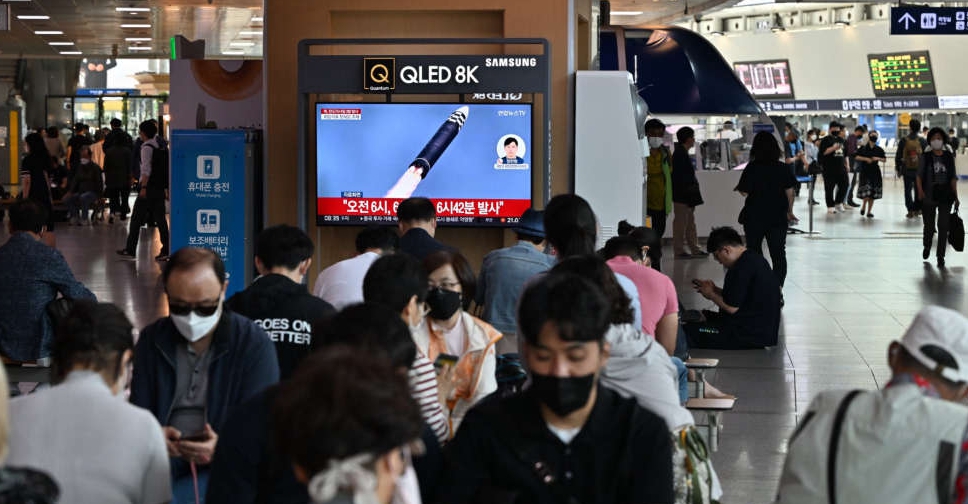
North Korea fired three missiles on Wednesday, including one thought to be its largest intercontinental ballistic missile, after US President Joe Biden ended an Asia trip where he agreed to new measures to deter the nuclear-armed state.
South Korea's deputy national security adviser, Kim Tae-hyo, said the North also appeared to have conducted multiple experiments with a detonation device in preparation for its seventh nuclear test but that the test was unlikely to occur in the coming days.
In response to the missile launches, the United States and South Korea held combined live-fire drills, including surface-to-surface missile tests involving the US Army Tactical Missile System (ATACMS) and the South's Hyunmoo-2 SRBM, both militaries said.
They also put on other military shows of force such as dozens of fighter jets in an "Elephant Walk" formation, highlighting new South Korean President Yoon Suk-yeol's harder-line policy on the North's accelerating weapons tests.
His predecessor, liberal Moon Jae-in, staked his legacy on an ultimately unsuccessful attempt to engage with Pyongyang, but began conducting more military shows of force in the waning days of his administration this year after North Korea test-fired a string of missiles.
Yoon, inaugurated on May 10, secured promises in a summit with Biden over the weekend that the United States would increase joint military drills and deploy more "strategic assets" - typically nuclear-capable bombers, submarines, or aircraft carriers - to the region if necessary to deter North Korea.
"Our military's show of force was intended to highlight our resolve to firmly respond to any North Korean provocations, including an ICBM launch, and our overwhelming capability and readiness to conduct a surgical strike on the origin of the provocation," South Korea's Joint Chiefs of Staff said in a statement.
In a phone call with US Secretary of Defense Lloyd Austin, South Korea's defence chief called for deploying American strategic assets and said both sides agreed to reinforce US extended deterrence to counter the North's provocations, Seoul's defence ministry said.
North Korea has conducted a flurry of missile launches this year, from hypersonic weapons to test firing its largest intercontinental ballistic missiles (ICBMs) for the first time in nearly five years.
Washington and Seoul officials also recently warned that North Korea appeared ready to resume nuclear weapons tests for the first time since 2017, possibly during Biden's visit, his first to Asia as president.
MESSAGE TO ALLIES
A White House official said that Biden, who departed Japan on Tuesday evening, had been briefed on the launches. A State Department spokesperson issued a statement urging the North to "refrain from further provocations and engage in sustained and substantive dialogue".
Japanese officials condemned the tests and Chief Cabinet Secretary Hirokazu Matsuno said the North could take more provocative actions, including a nuclear test.
"North Korea's continued provocations will only result in even stronger, faster South Korea-U.S. deterrence, and bring deeper isolation upon itself," Yoon's government said in a separate statement.
South Korean Foreign Minister Park Jin and US Secretary of State Antony Blinken agreed in a phone call to step up efforts to reinforce extended deterrence and facilitate a new UN sanctions resolution, Seoul's ministry said.
South Korea and the United States have offered to send COVID-19 vaccines to North Korea, which is battling its first confirmed outbreak, and urged Pyongyang to return to diplomacy.
But there has been no response from Pyongyang to the diplomatic overtures or offers of aid, Biden said.
In the waning hours of Biden's visit to the region, Russian and Chinese bombers flew joint patrols near Japanese and South Korean air defence zones on Tuesday in a pointed farewell.




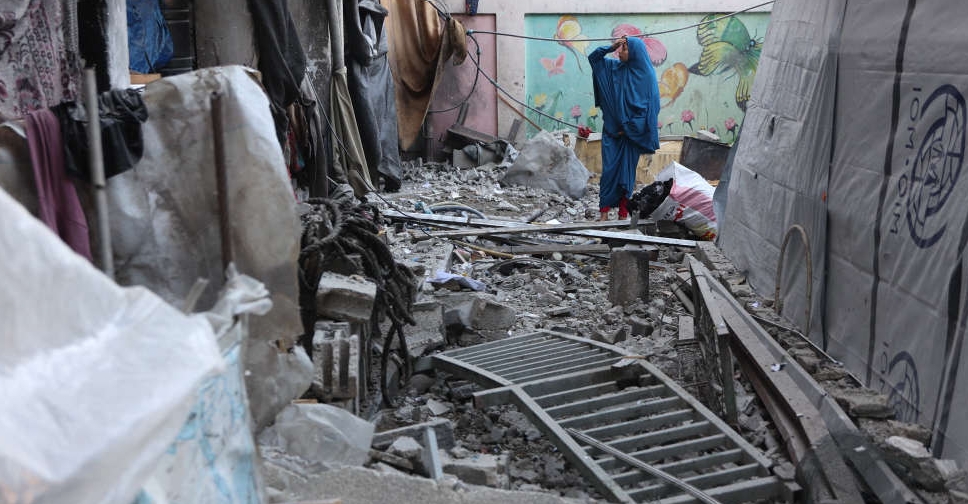 Israeli strikes kill 17 Palestinians in Gaza
Israeli strikes kill 17 Palestinians in Gaza
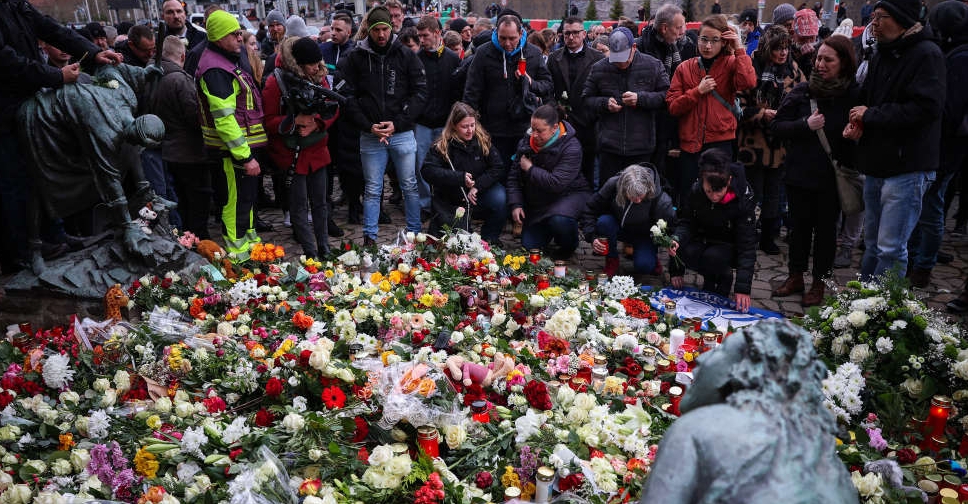 Suspect in German Christmas market attack held on murder charges
Suspect in German Christmas market attack held on murder charges
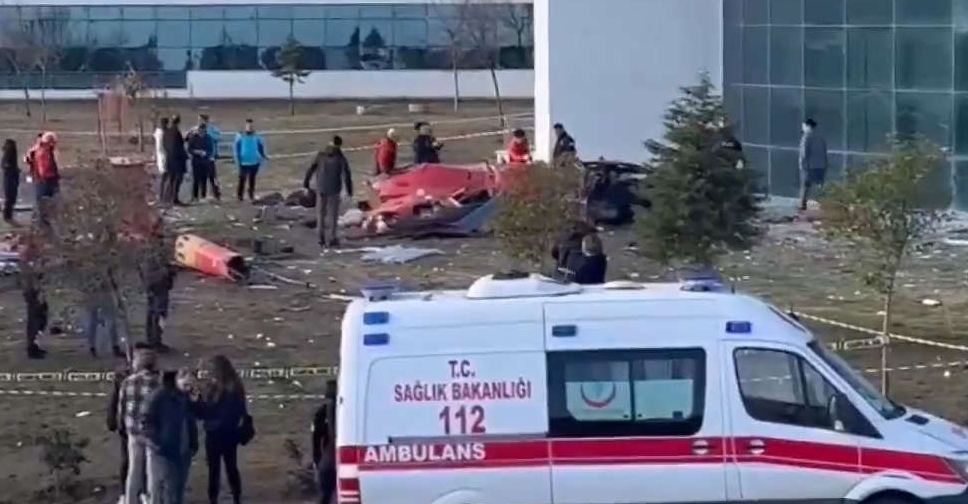 Four killed in helicopter crash at Turkish hospital
Four killed in helicopter crash at Turkish hospital
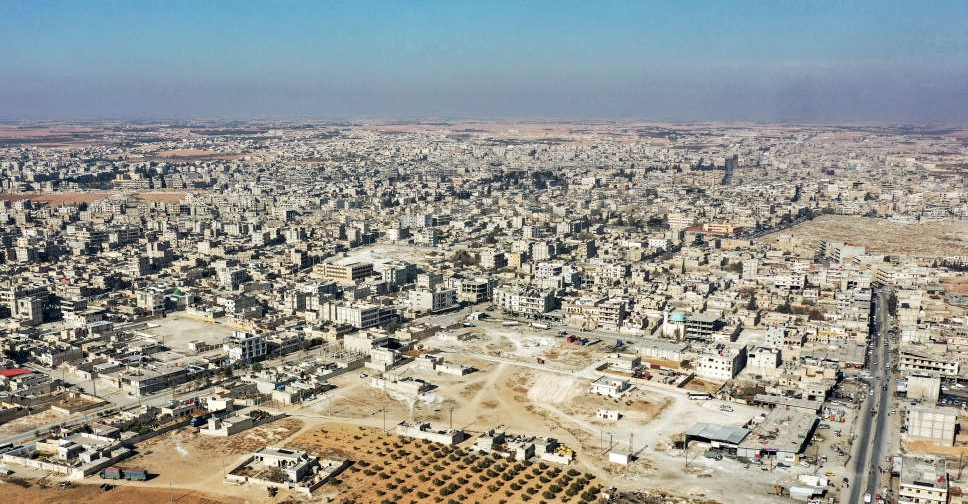 Five SDF fighters killed in strikes by Turkish-backed forces
Five SDF fighters killed in strikes by Turkish-backed forces

